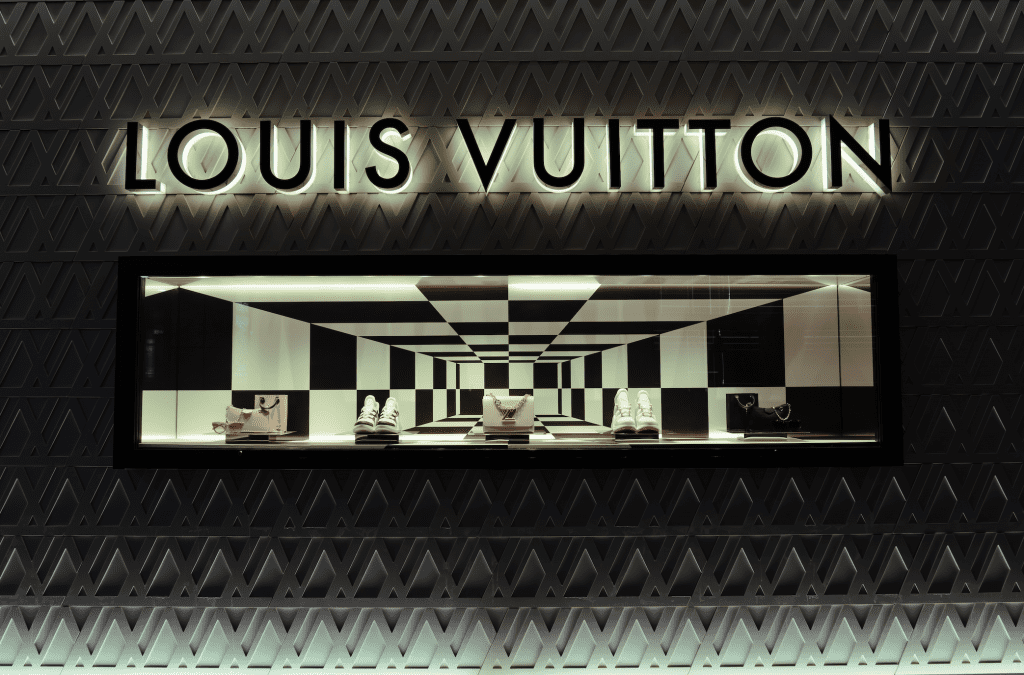“In luxury, tech has hit hard – Instagram and WeChat are now names as readily dropped as any Paris designer. And trends are shifting faster than ever, with streetwear having a serious influence, younger consumers demanding [access] and new global markets’ tastes changing the game,” Interbrand states in connection with its 2019 Best Global Brands report. Reflecting on its annual ranking, the global brand consultancy asserts that “brands that have picked up the pace and adapted to the times are doing well; those who have been slower to embrace the new paradigm are struggling to keep their famous brands relevant.”
Based on its evaluation of global technology, consumer-goods, automotive and financial brands, Interbrand calculates a “brand value” for each one by considering the company’s financial forecast, “role of brand” (i.e., “the portion of the purchase decision attributable to the brand, itself, as opposed to other factors, such as purchase drivers such as price, convenience, or product features”), and brand loyalty elements.
With that methodology in mind, the 2019 list sees Apple take the top spot again this year, followed by Google, Amazon, Microsoft, and Coca-Cola. In terms of retail and luxury brand value, Nike is ranked at 16 (with a brand value of $32.3 billion, up 7 percent), followed by Louis Vuitton in the number 17 spot (brand value of $32.2 billion, up 14 percent), Chanel at 22 (brand value of $22.1 billion, up 11 percent), Hermès at 28 (brand value of $17.9 billion, up 9 percent from last year), Zara and H&M at 29 and 30, Gucci at 33, adidas at 45, beauty giant L’Oreal at 51, Cartier at 68, Dior at 82, Tiffany & Co. at 94, Burberry at 96, and Prada in the number 100 spot.
Again this year, Gucci – which is up 23 percent in terms of its $15.9 billion brand value – is the most quickly growing name in the “Retail and Luxury” grouping (the fastest growing group on the list as a whole), despite it being in “recent danger of fading from the limelight.” Gucci’s turnaround, the consultancy says, can be tied to its leadership’s practice of “tapping into concepts of fluidity for Gen-Z, and by incorporating a ‘millennial shadow committee’ into its direction planning.” In doing so, the brand has “put young people at the very heart of its business,” and has “gotten its cool back.”
In addition to setting out a ranking of this year’s leaders, Interbrand looks to define what luxury is right now, noting a shift in the status quo, as traditional luxury brands “are pivoting from luxury as [a] deeply exclusive” concept and practice to one that is “more dynamically inclusive.” At the same time, it states that new brands are regularly “emerging to define new categories and business models, all in the restless pursuit of consumers who now ask to access luxury on their own terms.”
“Openness, collaboration and co-creation have proven to be game-changers across the industry, and the brands that are excelling are those who obsess about learning from their customers,” per Interbrand. For Burberry, a company that stands out to Interbrand dating back to its “then ground-breaking streaming of its fashion show, which turned the heads of millennials around the globe, [and] powered years of sustained growth,” this takes the form of “deploying the best of tech in the service of the best of customer experience,” says Mark Morris, the brand’s Senior Vice President of Digital Commerce.
According to Morris, partnerships with the likes of Apple mean that “luxury customer service is moving towards a human relationship, augmented by data,” thereby allowing brands to serve customers with “personal and seamless experiences” and “across channels and regions in a way that was not previously possible.”
“More broadly in luxury,” Interbrand asserts, “hyper-personal and hyper-local are proving the operating practices of success, as human to human connection takes on exponential new levels. Having been the pioneers of bespoke, luxury brands are now reinventing it with new levels of relevance.”
In short: Interbrand states that the fastest-growing luxury brands have revolutionized and will continue to revolutionize the relationship between customers and their businesses by “anticipating the formation of new cultural patterns, sensing the shifts in values, and finding their role in it,” not by way of “self-serving stunts, but powerful means to an end – conceived and designed to accelerate the business’s progression along its desired trajectory, seeking an alignment (or realignment) between customers, the business, and their interactions.”











